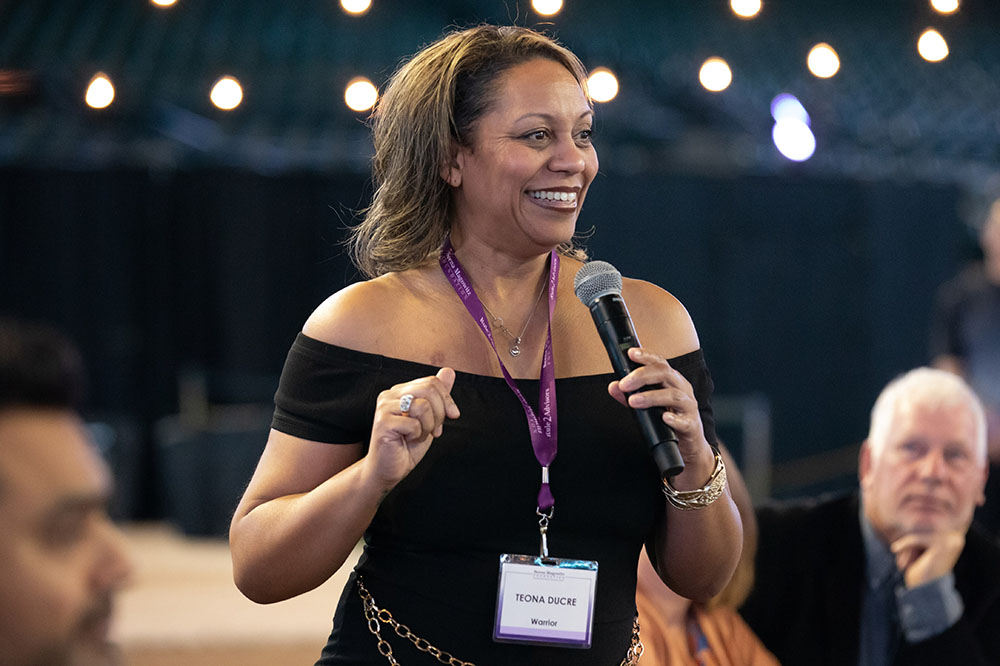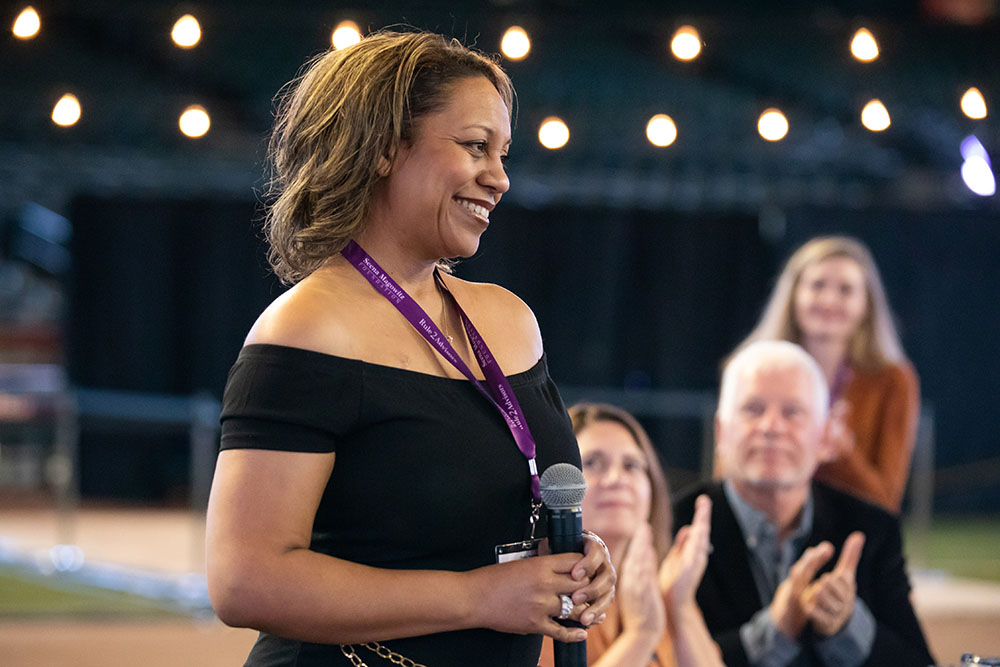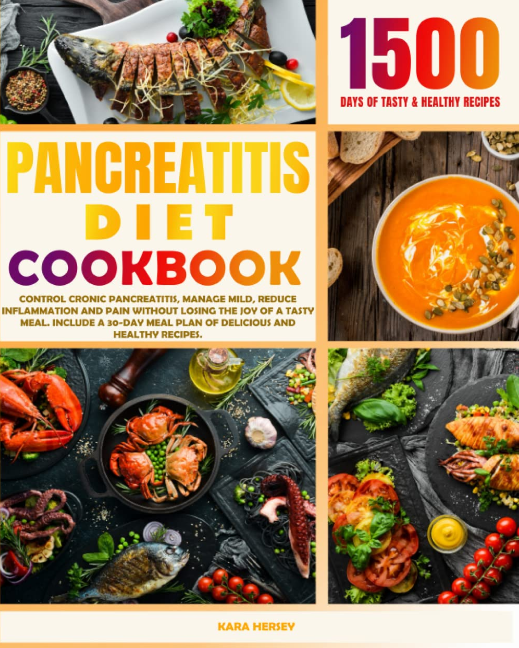

Teona Ducre Urges Other Patients
To Become Self Advocates
Written By: Julia Brabant
July 2023
Date of Diagnosis: April 1, 2016
Current Status: No Sign of Active Cancer
7-Year Pancreatic Cancer Survivor Teona Ducre On Detection, Tumor Testing & Self-Advocacy
As a seven-year survivor of pancreatic cancer, the chances of Teona Ducre’s cancer coming back are slim. Yet, she isn’t about to let that stop her from spreading the word about symptoms, treatment options and rising survival rates in an effort to help others facing the same diagnosis.
Teona was just 41 when she found out she had Stage 3 pancreatic cancer; a diagnosis made after the Atlanta, Georgia-based teacher and mother of two started experiencing what she described initially as “vague” symptoms. She developed lower back pain and began dropping weight, and she also found herself uncharacteristically tired, finding it hard to complete her typical workouts.
Her teaching assistant mentioned that Teona didn’t look like her normal self and urged her to see a doctor. Teona went to the local urgent care, where doctors suspected she had an ulcer and started her on Prilosec. The medication didn’t help, and her condition worsened, with a fever indicating a possible infection.
The urgent care doctor then determined that Teona did not, in fact, have an ulcer, but rather, a mass, and sent her to an oncologist at a gastrointestinal practice for additional tests.
“There’s no way this is cancer,” the oncologist there told her. “You’re 41 with no family history, you’re not jaundiced…go home.”
Teona left, but something about the doctor’s instructions wasn’t sitting right with her or her mother. Her mother urged her to seek a second opinion at Atlanta, Georgia’s Emory Winship Cancer Institute, where doctors determined she had Stage 3 inoperable pancreatic adenocarcinoma.
While adenocarcinoma accounts for more than 90% of pancreatic cancer cases, Teona’s case was unique in that her tumor was in the tail of the pancreas, rather than the head, and pushing against her spleen. The placement of it led the hospital’s tumor board to reject her as a candidate for surgery, and she didn’t have much luck finding nearby clinical trials she might be eligible for as an alternative treatment option, either.
Teona’s doctors decided her best option was to begin chemo, so she did so using FOLFIRINOX. She found that she responded relatively well to the treatment, which she credits in part to her young age and the fact that she was active and healthy before her diagnosis and remained such in the days and months that followed.
She did have some side effects, though, including heart palpitations, dietary challenges and declining potassium levels that required constant monitoring. That said, the chemo worked as intended, and it eventually shrank Teona’s tumor to the point where her medical team decided she was a candidate for surgery, after all.
Teona underwent a distal pancreatectomy and splenectomy in November 2016; a major surgery that involves removing both the spleen and the tail and body of the pancreas while leaving the rest of the organ intact.
She’d dropped close to 50 pounds since her diagnosis, complicating her recovery, and she also developed neuropathy in her hands and feet. Teona soon began maintenance chemotherapy to help prevent the cancer from coming back, post-surgery, but stopped treatment about five months later after developing mouth sores and an infection in her port.
“I just hit that point when I knew – I don’t want to do this anymore,” Teona said of the chemo.
She hasn’t had chemotherapy since May 2017 but continues to have regular checkups and scans even now, seven years after surgery. She noted that, while many patients stop having regular scans once they hit the five-year mark, at which point the chances of their cancer returning diminish significantly, she and her team decided to continue regular scans so that they could easily catch a potential recurrence.
While Teona has returned to work and since taken on a new role as a physician recruiter, she does face some ongoing challenges stemming from her diagnosis and subsequent surgery.
“Eating is still the hardest part of my life,” she said, noting that, despite her best efforts, she often feels ill after snacks and meals.
Teona’s doctors also determined she’d had a stroke at some point during one of her follow-up visits after identifying scar tissue on her brain, leading her to have occupational and vision therapy to help relearn fine motor skills.
While taking some time off of work to recover, Teona began exploring pancreatic cancer research and advocacy organizations, hoping to find a way to use her journalism and special education background to help other people facing pancreatic cancer diagnoses.
“The advocacy piece just sort of happened,” Teona said, of her decision to become an increasingly visible face and voice in the metro-Atlanta pancreatic cancer community. “I knew I’d have some time off from working, and I didn’t want to just sit around having cancer.”
She’d also lost a close friend, Mark Gelinas, to pancreatic cancer and wanted to pick up where Mark, an advocate himself, had left off. She began lending her time and talents to various organizations, including the Pancreatic Cancer Action Network and Purple Pansies, an Atlanta-based pancreatic cancer advocacy organization.
As part of her education and advocacy, Teona sought to raise awareness about genetic and tumor biomarker testing, which can give doctors critical information about a patient they might need in the event of a recurrence. Teona’s tumor tests revealed her tumor had the BRCA gene mutation, which may expand her treatment options if her cancer ever does come back.
Teona feels especially dedicated to helping raise awareness about pancreatic cancer and its associated symptoms among members of the Black community. Statistically, Black individuals are more at risk of pancreatic cancer than members of any other racial or ethnic group, and they also have higher age-adjusted mortality rates than white Americans.
Teona also urges patients from all backgrounds to remember that they have a voice in their care plans and urges their loved ones and family members to listen to and respect their preferences.
“Don’t assume patients with serious illnesses don’t have a voice, or don’t want to have a voice,” Teona said. “We patients must have a voice in everything from treatment to whether we decide to have living wills. Don’t be afraid to use that voice and be your own best advocate.”
Teona celebrated seven years cancer-free April 1, 2023.



